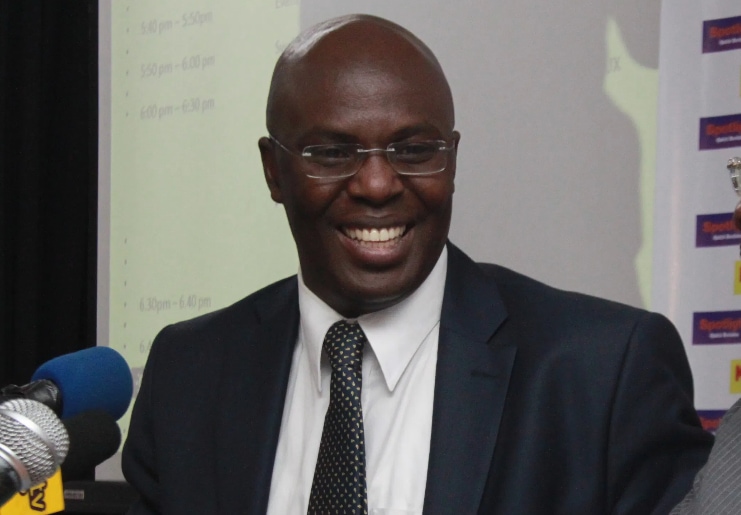Funny how working as a probation officer almost made him become a policeman
By Undercover Reporter
In a country where celebrities are near empty heads reeling from 15 minutes of fame, he rose from reading the lunchtime radio news bulletin, to television anchor and then professor, all the while skirting the wind of stardom that flapped his sails.
Ken Walibora Waliaula, knocked to death by a matatu at 56, had an engaging baritone that drew Kenyans to KBC Idhaa ya Taifa for the all important One O’clock news in which Vice Presidents were sacked, ministers demoted, dissidents detained and the death of politicians also got Kenyans chocking over their lunch.
That was in the blighting 1990s, the President made half the news, public schools had Radio Lessons, but the country was at the cusp of FM radio and its soon to be staple tabloid diet of aerating domestic kerfuffle in public.
The only private television station was KTN then airing foreign programmes like Neighbours, Knots Landing, Sunset Beach.
The licensing of more private television stations put face to a voice when Ken Walibora joined NTV as a Swahili anchor in 1999. Television news bulletins for private stations were mostly in English, even continuity announcers like Jimi Gathu, Pete Odera, Lydia Manyasi and Esther Mbondo prepared viewers for upcoming programmes in English.
Kiswahili television bulletins were lessons in linguistics of which Walibora was part
Walibora was among the fresh crop of presenters anchoring news in Kiswahili sanifu Kenyans were learning a stadium was not uwanja, but uga, as in uga wa Kasarani; that rapping was nyimbo za kufokafoka and yoghurt was not yogo yogo or maziwa ya mgando but mtindi, that juice was sharubati.
Kiswahili television bulletins in Kenya where half the population was baby sat on Sheng, the colloquial street lingo, were somehow, lessons in linguistics of which Walibora was part.
I often strive to write stories that have no sell by date
Television anchors were not only news readers but news makers as well, part of the gossip pages that made them celebrities. But Walibora did not take that route to fame, rather, his Swahili novels being turned into school set books were what made him a household name- anchoring was an added advantage.
Weaned on English novelist Charles Dickens’ Great Expectations, Walibora deviated to writing in Kiswahili, ‘the language of my heart.’ Shortly, and beginning with Siku Njema, of which he said “I often strive to write stories that have no sell by date,” he went on to become among the new cohort of Kiswahili authors in the path well beaten by his fore bearers; Abdilatif Abdalla, Alamin Mazrui, Kyallo Wamitila, Wallah bin Wallah, Rocha Chimera, Kitula King’ei.
“I write every book as if it is my first and last one, as if my life depends on it” he said and Siku Njema, became a school set book as did his Kidagaa Kimemwozea.
With that shot at scholarship, it was with an easy transition that the last born son of a head teacher from Bungoma, began abandoning the media in 2004 for studies in literature majoring in Kiswahili at the University of Nairobi and Ohio State University, USA.
Kiswahili for its increased gravitas in a globalised world, literature because it’s a looking glass to society and through fictionalized experience, humanity connects to larger truths and ideas.
Beyond reading bulletins from field reporters, Walibora had a head, something between his ears for scholarship
Indeed, Google has Kiswahili as a language option. Walibora was among scholars who did the translation. And without such scholars, how would email be barua pepe, website tovuti, or cell phone simu ya rununu?
Funny how working as a probation officer for eight years almost made him become a policeman. Would the linguistic and cultural scholar have written Kufa Kuzikana, Ndoto ya Almasi, Damu Nyeusi, Kipara Ngoto or Ndoto ya Amerika had he followed the beats of a police drum?
He is more famous as a Kiswahili author because “it flows much more naturally for me” and he also reckoned “my creative work springs from self-determination and one could say, an attempt to create oneself,” but Walibora also wrote in English: Anthology of African Prison Literature, was fleshed from The incarcerated self: Narratives of political confinement in Kenya, his PhD in Comparative Cultural Studies from Ohio State University in 2009.
So, beyond reading bulletins from field reporters, Walibora had a head, something between his ears for scholarship. No wonder in another life, before reading news at KBC, he was a Kiswahili teacher at Sitatunga Secondary. It then became second nature to lecture at Ohio, before repairing home to among other things, lecturing at Riara University, Nairobi.
Ken Walibora Waliaula, Siku Njema!

